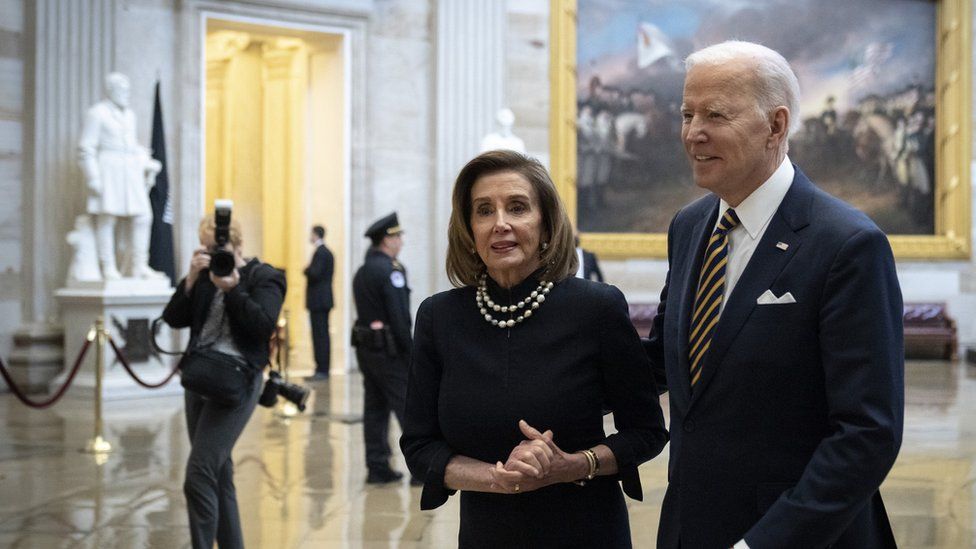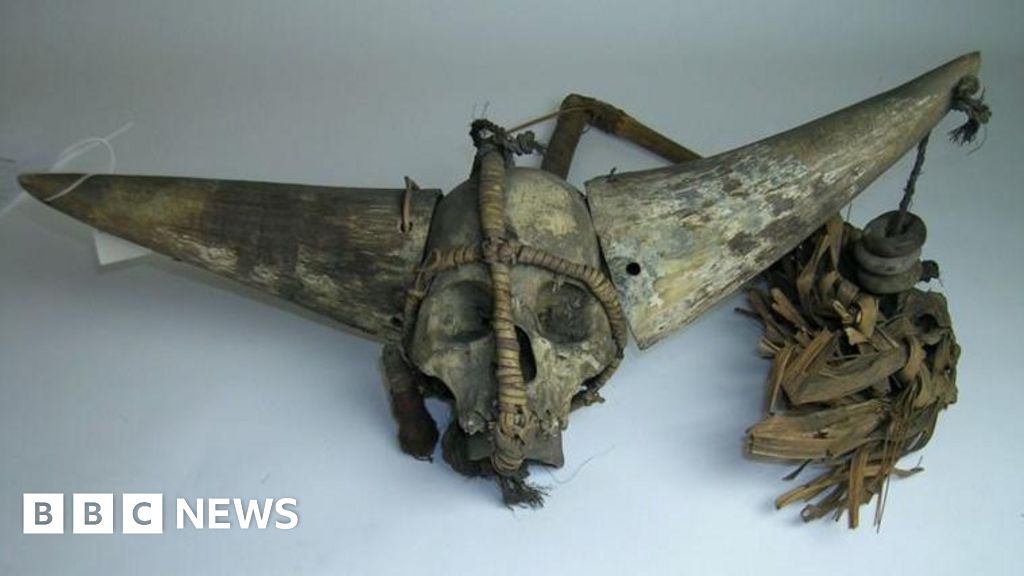ARTICLE AD BOX
By Barbara Plett Usher
BBC State Department correspondent
 Image source, Getty Images
Image source, Getty Images
Senior Democrat Nancy Pelosi's visit to Taiwan created a headache for President Joe Biden
Nancy Pelosi's visit to Taiwan has left Joe Biden with a serious headache as tries to manage ties with America's biggest global rival. Analysts warn that many risks lie ahead.
The relationship between China and the United States was founded on deliberate ambiguity over Taiwan.
Maintaining the status quo - in which Beijing says Taiwan is part of China, Taiwan says it's independent, the US says it's not but treats it like an ally, and no one makes aggressive moves on their claims - has been the least-worst option of keeping a tenuous peace.
But the US House Speaker has shone a harsh spotlight on the contradictions of this arrangement - which had already become strained.
China's fury over her visit to Taiwan - she is the most senior US official to make the trip in 25 years - has also further complicated President Biden's efforts to manage a relationship that's reached new lows.
And it's increased the chance of America being drawn into conflict with another major power while preoccupied with Russia's war against Ukraine.
It didn't help that one arm of the US government seemed to be at odds with another, making Taiwan look like it was part of a Washington turf war.
Ms Pelosi, a Democrat and long-time China hawk, was cheered on by a strong contingent of Republican lawmakers who agreed that congressional visits to Taiwan were important demonstrations of US solidarity in the face of rising Chinese threats toward the self-governing island.
Her fellow Democrat in the White House didn't feel it was his place to stand her down, since Congress is independent of the executive.
Privately, Mr Biden sent advisers to warn her of the risks at a politically sensitive time for Chinse President. Xi Jinping is facing an important party congress in November while under considerable domestic pressure and can't afford to look weak, she was told.
When Ms Pelosi decided to go anyway the administration was left to defend the move and play down its significance, stressing that it didn't mark a change in America's "One China" policy.
But it acknowledged that Beijing would react badly and could continue its response for weeks if not months.
Watch: China launches missiles in Taiwan drills
As China encircles Taiwan with live-fire military drills, the view in Washington is still that President Xi aims to "calibrate" his moves so as not to ignite open warfare, which neither side wants.
But it's an explosive development in a brittle relationship.
"The US and China don't have either the political space or really the relationships and the mechanisms to prevent an incident like that from becoming a full-blown crisis," says Danny Russel, a former diplomat who specialised in the Asia Pacific, now with the Asia Society Policy Institute.
"I think (the Pelosi visit) will lock in the hardest-line thinking in China, and really remove any place for advocacy of patience and caution," he told the BBC.
That would deepen the dysfunction of already faltering efforts for the two global powers to address a host of other issues.
China's diplomatic support for Russia is near the top of the list for the US, but the ongoing trade war is a close second, followed by the need to deal together with climate change and the risk of North Korea's nuclear weapons.
President Biden took office as Xi Jinping was growing more authoritarian at home and more assertive abroad. The US response was a policy that defined Beijing as a strategic competitor and America's greatest long-term challenge. China didn't appreciate this framework, and the administration hasn't got far with its plan to also seek cooperation where possible.
The White House now says its goal is to establish "guardrails" to manage disagreements, worked out directly between the two presidents.
But Taiwan has raised "an issue of credibility," says Bonnie Glaser, an Asia specialist at the German Marshall fund. "I do think that Xi Jinping will feel that he cannot take Joe Biden's word."
In that, Ms Pelosi's visit is only the tip of the iceberg. It follows a series of other steps that made China suspect the US was normalising relations with Taiwan, not least Mr Biden's suggestions that he had a stronger commitment to the island's defence than American policy requires.
Ms Glaser says what's needed is a "focused, quiet, candid dialogue" that goes off the standard ambiguity of the script and clearly spells out red lines.
Perhaps that will be possible if efforts to organise a face-to-face meeting between the presidents on the sidelines of the G20 summit in November bear fruit. That might help stabilise the relationship but would be unlikely to move it beyond crisis management.

 2 years ago
19
2 years ago
19







 English (US)
English (US)